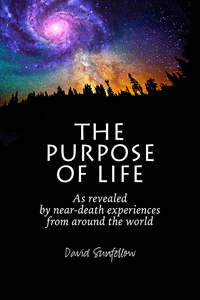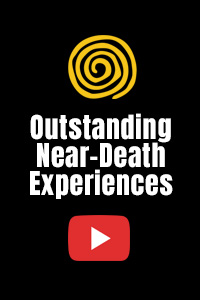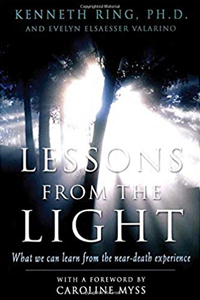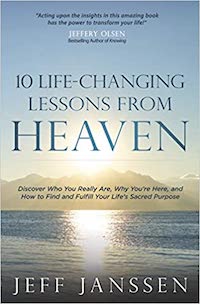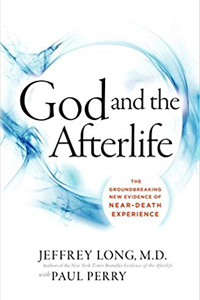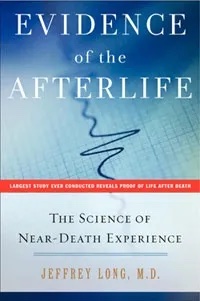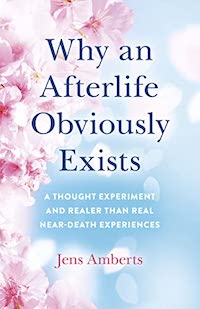The following talk comes from a seven-part series of near-death experience classes that David Sunfellow taught in Sedona, Arizona. This was the sixth talk called Jesus, Near-Death Experiences, and Religion. To learn more about Jesus through modern day encounters via dreams, visions, visitations, near-death experiences, and other spiritually transformative experiences, as well as historical encounters, visit David’s Encounters With Jesus website. David’s newest book, 500 Quotes From Heaven, also includes a fabulous chapter about Jesus from near-death experiences.
……………..
To help set the tone, the video below played as people gathered for this special class. To create the same atmosphere for yourself, you may want to watch this video before watching David’s main presentation.
……………..
David’s presentation.
>> Click here to download a copy of this video <<
……………..
Viewer Comments
“This a wonderful and very well done representation of what the NDE is really all about. I have shared this with my colleagues that have done extensive NDE research because of the way David Sunfellow has captured The Light’s qualities. I wish EVERYONE would watch this and ‘love the person they are with’ — over and over again. Thank you David for this excellent film!”
— NDEr Barbara Whitfield
…
“Great presentation David! I will pass this information along to all my contacts. Thank you for a job well done and for sharing it with all.”
— NDEr Nancy Clark
…
“This is fantastic. I watched it. I am so touched that people were moved as I am sharing my story to help people feel the love I felt from Christ. Thank you for what you are doing, helping us get the story out!”
— NDEr Yvonne Sneeden
…
“This presentation was excellent. Well done brother. My prayer is that one day my fellow priests and clergy will be preaching this on a regular basis. Once that happens the churches will once more come alive with the power of God’s love and His message of unconditional love and forgiveness for all. This message has the power to change the world and bring peace.”
— Reverend Rod Walton, UK Bereavement Rescue Centre
…
“Thank you for your video about near-death experiences and Jesus and religions. Your perspective and presentation of it is very inspiring, healing, enlightening. I ran across your YouTube on this topic and shared it with my husband and we watched it together. It really helped us accept each other’s perspective, since I am growing more and more “new agey” and he is growing more and more back to his Southern Baptist roots. We felt like your video helped us meet in the middle. We were managing to respect and have tolerance for each other’s point of view, but I think you have helped us get beyond just that to a place where we can actually share more of our spirituality. Thanks so much. The work you are doing is lovely.”
— Lucy O
……………..
……………..
Introductory Text
Jesus, Christians, and Near-Death Experiences
By David Sunfellow
When we examine near-death experiences as a whole; when we consider the experiences that people from all of the world, including non-Christians, are reporting, the best estimates we currently have indicate that Jesus only shows up in 6.5 percent of these experiences. What makes it look like Jesus is more dominant is that some of the most famous and influential NDEs that have been reported come wrapped in Christian packages. This includes the NDEs of such people as Dr. George Ritchie (who was the inspiration behind Dr. Raymond Moody’s groundbreaking book, Life After Life), Howard Storm, Betty J. Eadie, Angie Fenimore, Don Piper, Ian McCormack, Mickey Robinson, Colton Burpo, Dr. Mary Neal, Chris Markey, Yvonne Sneeden, Annabel Beam, Jeff Olsen, Chris Russell, Emanuel Swedenborg, and many more.
Western civilization, especially America, is also dominated by Christians and Christian traditions. That means that the western media and, by extension, much of the global communications network, is heavily influenced by Christian sensibilities. And this, in turn, produces more reporting of NDEs with overtly Christian themes, which generate higher ratings, produce more best sellers, and make more money than less Christian, less dramatic NDEs.
But there is another inescapable truth to consider.
If you wash away the dirt that has been piled on Jesus for the last 2,000 years and go back to the earliest records, which pre-date Christianity and the New Testament, you discover someone that is astonishingly aligned with the core truths presented in NDEs from around the world. Simply put: there is no other historical figure who embodies the core truths presented by NDEs more fully than Jesus, especially the central and uncompromising call to love one another, love God, and love ourselves.
The rest of this article is located here.
……………..
Bible Quotes Mentioned In Presentation
“You have heard that it was said, ‘YOU SHALL LOVE YOUR NEIGHBOR and hate your enemy.’ “But I say to you, love your enemies and pray for those who persecute you, so that you may be sons of your Father who is in heaven; for He causes His sun to rise on the evil and the good, and sends rain on the righteous and the unrighteous. “For if you love those who love you, what reward do you have? Do not even the tax collectors do the same? “If you greet only your brothers, what more are you doing than others? Do not even the Gentiles do the same? “Therefore you are to be perfect, as your heavenly Father is perfect.”
— Matthew 5:43-48
…
“‘For I was hungry, and you gave Me something to eat; I was thirsty, and you gave Me something to drink; I was a stranger, and you invited Me in; naked, and you clothed Me; I was sick, and you visited Me; I was in prison, and you came to Me.’ “Then the righteous will answer Him, ‘Lord, when did we see You hungry, and feed You, or thirsty, and give You something to drink?‘ And when did we see You a stranger, and invite You in, or naked, and clothe You? ‘When did we see You sick, or in prison, and come to You?’ “The King will answer and say to them, ‘Truly I say to you, to the extent that you did it to one of these brothers of Mine, even the least of them, you did it to Me.’”
— Matthew 25: 35-40
…
“Philip said to Him, “Lord, show us the Father, and it is enough for us.” Jesus said to him, “Have I been so long with you, and yet you have not come to know Me, Philip? He who has seen Me has seen the Father…”
— John 14:8-9
…
“A new commandment I give to you, that you love one another, even as I have loved you…”
— John 13:34
……………..
15 Ways The Historical Jesus & Near-Death Experiences Are Similar
By David Sunfellow
No other historical figure embodies that core truths presented by near-death experiences more fully than Jesus.
1. Jesus experienced God as a personal, loving, divine presence (Jesus reportedly referred to God as Abba, which is Aramaic for “papa”). God, in other words, wasn’t just an abstract, impersonal energy field of love. It was sentient. It had personality. It was expressive. It knew every hair on our heads and expressed Its love in tangible, concrete ways.
2. Jesus insisted that God loves EVERYONE. This is one of the things that may have gotten Jesus killed: he refused to obey the cultural, religious, and political “purity systems” of his day.
In the time of Jesus, it was believed that you had to be pure to stay in God’s good graces. The Jewish purity system of first century Palestine was built around a system that elevated the most pure and reviled the most impure. One’s purity depended on one’s birth and lineage. Priests and Levites came first, and were followed by Israelites and then converts to the Jewish faith. Further down the road were bastards. Purity also depended on behavior. Those who carefully obeyed purity codes were regarded as more pure than those who ignored them. People who ignored or downplayed these codes were regarded as outcasts, which typically included tax collectors and shepherds. Physical wholeness was also a purity issue. People who were not whole — who were maimed, chronically ill, lepers, eunuchs, and so on, were considered impure. People who were abjectly poor were also considered impure. Males, who did not menstruate or give birth like females, were considered more pure than women. Finally, Jews were considered more pure than Gentiles.
Jesus scholar Marcus Borg sums it up by saying:
“The effect of the purity system was to create a world with sharp social boundaries: between pure and impure, righteous and sinner, whole and not whole, male and female, rich and poor, Jew and Gentile.”
Borg continues:
 “One of his [Jesus’] most characteristic activities was an open and inclusive table. ‘Table fellowship’ — sharing a meal with somebody — had a significance in Jesus’ social world that is difficult for us to imagine. It was not a casual act, as it can be in the modern world. In a general way, sharing a meal represented mutual acceptance. More specifically, rules surrounding meals were deeply embedded in the purity system. Those rules governed not only what might be eaten and how it should be prepared, but also with whom one might eat. Refusing to share a meal was a form of social ostracism. Pharisees (and others) would not eat with somebody who was impure, and no decent person would share a meal with an outcast. The meal was a microcosm of the social system, table fellowship an embodiment of social vision…
“One of his [Jesus’] most characteristic activities was an open and inclusive table. ‘Table fellowship’ — sharing a meal with somebody — had a significance in Jesus’ social world that is difficult for us to imagine. It was not a casual act, as it can be in the modern world. In a general way, sharing a meal represented mutual acceptance. More specifically, rules surrounding meals were deeply embedded in the purity system. Those rules governed not only what might be eaten and how it should be prepared, but also with whom one might eat. Refusing to share a meal was a form of social ostracism. Pharisees (and others) would not eat with somebody who was impure, and no decent person would share a meal with an outcast. The meal was a microcosm of the social system, table fellowship an embodiment of social vision…
“The inclusive vision incarnated in Jesus’s table fellowship is reflected in the shape of the Jesus movement itself. It was an inclusive movement, negating the boundaries of the purity system. It included women, untouchables, the poor, the maimed, and the marginalized, as well as some people of stature who found his vision attractive. It is difficult for us who live in a world in which we take for granted an attitude (at least as an ideal) of nondiscrimination to appreciate the radical character of this inclusiveness. It is only what we would expect from a reasonably decent person. But in a society ordered by a purity system, the inclusiveness of Jesus’ movement embodied a radically alternative vision…
“In short, there is something boundary shattering about… the center of Jesus’ message and activity: ‘Be compassionate as God is compassionate.’ Whereas purity divides and excludes, compassion unites and includes. For Jesus, compassion had a radical sociopolitical meaning. In his teaching and table fellowship, and in the shape of his movement, the purity system was subverted and an alternative social vision affirmed. The politics of purity was replaced by a politics of compassion.”
Bottom line: Jesus not only challenged the religious, social, and political order of his day, but he was viewed as a dangerous virus that was infecting others with similar ideas and practices.
To learn more this very important topic, read Chapter 3: Jesus Compassion, and Politics, in Marcus Borg’s book Meeting Jesus AGAIN for the First Time.
3. Jesus indicated that God loves everyone wholeheartedly and unconditionally. There is nothing we can do that can cause God to stop loving us.
4. Jesus saw the imperfections of those he encountered and encouraged people to correct them. The kind of love we see with Jesus, in other words, is the same kind of love we see reflected in near-death experiences. On the one hand, there is unconditional love and acceptance while, on the other, we are all held accountable for our shortcomings and encouraged to do better.
5. While Jesus saw where people fell short and encouraged them to do better, he insisted that we not judge and condemn anyone. Let he who is without sin throw the first stone.
6. Jesus indicated that God not only believes everyone is worth saving, but is actively pursuing those who have strayed. The life and parables of Jesus are full of examples of this.
7. The stories we have of Jesus are full of God, and his messengers, intervening in the lives of people. The God that Jesus knew, in other words, did not sit on a cloud somewhere and watch everything from a distance. He, and His messengers, often showed up in dreams, visions, and dramatic real world encounters.
8. Success, according to Jesus, is not measured by material possessions or worldly accomplishments. Instead, success is measured by how lovingly we treat one another.
9. Jesus insisted that The Kingdom of God is what’s real while the world is a passing phenomenon.
10. Jesus insisted that The Kingdom of God is here now. It is present everywhere if we have eyes to see.
11. According to Jesus, we are all connected to one another. Everything we do to one another, we do to ourselves — and him.
12. Jesus was a healer (which suggests he was plugged into the same Source that has miraculously healed so many near-death experiencers).
13. Jesus was an exorcist (which suggests he was not only aware of the unseen world that surrounds us, but also aware of and in command of the hellish beings and realms that near-death experiences insist exist).
14. Jesus may have had the ability to control nature and other aspects of the dream world.
15. An encounter with Jesus changed lives, often in very dramatic ways. Relationships ended, careers came to an end, old ways of thinking about things gave rise to new ways, people became less interested in material things and more interested in spiritual things. Near-death experiencers often report that their lives are completely changed after their experience.
……………..
……………..
……………..
Video 1: Barbara Springer & Paul Carr
These two video clips are excerpted from Norman Van Rooy’s outstanding 1992 NDE documentary “Shadows: Perceptions of Near-Death Experiencers.” The complete documentary, which is included below, features David Biber, Paul Carr, Karen Daly, Marc Gallo, Chuck Griswald, Chuck Griswold, Anne Horn, Martha Lounsberry, Cindy Massey, Dr. Melvin Morse, Kimberly Clark Sharp, Barbara Springer, Robert Turner, and Dee Wagner.
……………..
Video 2: Dr. George Ritchie
The video clips that were played in class of Dr. George Ritchie were taken from the videos below. To learn more about Dr. George Ritchie and his remarkable near-death experience, go here.
…
……………..
Video 3: Lyn Breshaw
Here is Lyn Breshaw’s full description of her encounter with Jesus. It begins by her hearing a voice that repeatedly told her “call to me and I will save you.”
……………..
Video 4: Howard Storm
Here is Kevin Moore’s complete interview with Howard Storm. To learn more about Howard Storm, go here.
Here are highlights from what Howard Storm had to say in the part of the interview that was mentioned in David’s presentation:
– “I believe that Jesus is the perfect revelation of God. He is a persona of God to help us understand God and know God.”
– Jesus and the angels have a terrific sense of humor (humor is an NDE super power; the more we advance spiritually, the greater our sense of humor)
– Jesus and the angels are very, very, very forgiving and understand that destructive thoughts and behaviors are part of our growing process
– What Jesus and the angels ultimately want for us is for us to evolve, enter heaven, and become beautiful spiritual beings like they are. The goal is to become more and more like Christ.
– The universe is full of life.
– Jesus has been everywhere. Jesus appears on other planets in the form of the beings he visits. On Earth, he appeared as a Jewish carpenter; on other planets, he appears as one of them.
– We have abilities and powers built into us to do things, but we’re not ready to use most of these gifts.
One reminder: spiritual experiences do not transform people into perfect people overnight. In addition, sometimes the things that people learn on the other side of life are used in very immature and destructive ways.
“I was a raging fanatic. I drove my wife and my two teenage children very far away from me by being so obnoxious about their conversion.”
— NDEr Howard Storm
……………..
Video 5: Yvonne Sneeden
The comments from Yvonne Sneeden that were shared in David’s presentation appear in the second of these two videos. Yvonne gave this talk on April 11, 2014 at a symposium on near-death experiences sponsored by The Rhine Institute and The International Association of Near Death Studies (IANDS). To learn more about Yvonne and her near-death experience, go here.
…
……………..
Video 6: Emanuel Swedenborg: How Different Religions Coexist in Heaven
11 minutes of the video below were featured in David’s presentation. The complete video is 46 minutes. To learn more about Emanuel Swedenborg, go here.
……………..

Jesus, The Man
By David Sunfellow
EXCERPT:
He was loving. He was kind. He was gentle. He was mindful of loved ones and friends.
He wined and dined with the wealthy. He consorted with the poor and the down-trodden. He slept in the fields with the shepherds. He taught on the hillsides and in the temples. He walked by the seashore with the throngs. He went wherever he was invited and reached, touched, and healed others in their own plane of experience. He grew faint and weak. His heart ached. His body bled. He experienced all the weaknesses of the flesh. He commanded the wind, the storm, the elements, the thunder and lightning. He was the first soul to experience, and master EVERYTHING, in Heaven and in hell, in body, in mind, in spirit.
Perhaps the most obvious and significant difference between the human life and the life of the Master was that Jesus was never blind, nor deaf, to the simplest opportunities along the way — and He never lost sight of His purpose: To make God fully manifest in man.
Whereas other prophets spoke through words, through prophecies, through admonitions, through knowledge, through great deeds, Jesus spoke through the human experience. He knew it was not in the thunder or lightning, not in the loudness of words or the magnitude of deeds, but in the little things — the kind word, the gentle touch — that brought God into the hearts and minds of men and women. Instead of seeking to illustrate metaphysical truths, or demonstrate healing ability, or explain the laws of God and life, or gain followers, Jesus was motivated first and foremost, by compassion. Above all, Jesus taught, and demonstrated, love.
To read/download the complete article, go here.
……………..
Love The Person You’re With
By Howard Storm
When Jesus told me I had to come back to the world and I was trying to convince him not to send me back, I asked him what would I do if I came back. Before he had a chance to answer, I said, “you know I am an artist and I would like to build you a shrine. I would make this shrine so big and beautiful and bizarre that people would come from all over the world out of curiosity to see what it was about. What they would find was it would be about you. That would make them think about you. That’s what I would like to do if I came back.”
 He said, “I would rather you didn’t do that.”
He said, “I would rather you didn’t do that.”
“WHAT?!! People have been building shrines to you forever. There are lots of shrines. Why can’t I build a shrine? I would like to build a shrine.”
“You spent so much of your life hiding out in the studio, avoiding people, I would prefer it if you didn’t avoid people by building this big shrine… I don’t really care about shrines. People like to build shrines. I understand that. It makes them feel good. It does absolutely nothing for me or for God. We don’t have any use for them whatsoever. If that’s what amuses you, I guess that’s what you gotta do. But don’t do it for me. Don’t deceive yourself into thinking it’s something I want or need, because I don’t.”
“OK, you shot down my idea. What’s your idea?”
“Love the person you’re with.”
“OK, great, I’ll do that. No problem. What do you want me to do?”
“I just told you what I want you to do: love the person you’re with.”
“Yeah, but after I do that, what do you really want me to do?”
“No, that is what I want you to do: love the person you’re with.”
I said, “Well that’s simple enough, that’s easy, I can do that.”
“Oh really. Well, that’s what I want you to do. That’s enough.”
And I said, “How is it enough?”
“If you do that, you will change the world.”
“Oh, you want me to change the world?!”
“Exactly, that’s why I put you in the world in the first place: to change the world.”
“Well you know there have been a lot of people who have tried to change the world and that usually turns out pretty badly. I can think of examples like Adolph Hitler, and Joseph Stalin, and Mao Tse-tung. All of them wanted to change the world and they made it worse. If I go back and try and change the world, why isn’t it possible that I could make a lot of terrible mistakes and make the world a worse place?”
“The way I want you to change the world is by loving the person you are with.”
“Wait a minute, that’s a contradiction. You want me to change the world but you just want me to love the person I’m with?”
“Yes, that’s the plan; that’s The Big Plan… If you love the person you’re with, then that person will go out and love the person they’re with, and they will go out and love the person they’re with and it will be like a chain reaction and love will conquer the world and everyone will love one another. That’s God’s Big Plan.”
“It’s not going to work.”
“Why won’t it work?”
“I love the person I’m with. She walks across the street and gets run over by a truck. Everyone gets angry and upset.”
“Yeah, that happens. But it’s really God’s plan and nothing is going to stop it. It’s going to happen.”
“Even if you had a million people, I don’t think it’s going to happen.”
“There are more than a million people in the plan…”
“Well, from what I know of the world, you don’t have enough.”
“Actually, we have all the angels in the plan. There are a lot of them. There are more angels than people in the world… There are millions of people. There are all the angels. And there’s God. It’s inevitable. The plan is going to happen.”
“If that’s your plan, I’ll do it, but I just don’t really see much hope for it.”
“You don’t know enough to see how it’s going to happen.”
So, my solution to everything is to love one another. And when I read the Bible and found out that that was written in the Bible as Jesus’ commandment: “This is my commandment, that you love one another…” That’s the program. I have tried to be part of that program… So, I personally have no big plan other than to be loving.
The only fly in the ointment was that I thought it was going to be easy, and it turns out to be the hardest thing I’ve ever done. It sounds so simple, but it’s really difficult. It’s easy for me to love my mother because she was a really nice woman; a very loving woman. It’s not hard to love someone who is really good and really loving. But what do you do with someone who is difficult, or really nasty? Those are hard people to love.
And what does it mean to love someone? Sometimes to love someone means you need to incarcerate them. And that’s not a lot of fun. Sometimes loving someone means you have to put as much distance between them and you as possible and tell them to never call you. And that’s not a lot of fun.
Loving people sounds so simple, but it’s very difficult…
……………..
Videos, Resources & Websites Mentioned In The Presentation
……………..
What History Teaches Us About Jesus
Gary Habermas describes what modern Jesus scholarship tells us about Jesus.
……………..
Other Important Jesus Links
• The Shroud of Turin
• Encounters with Jesus
• Loving Our Enemies: The Core of Jesus’ Vision in the Sayings Gospel Q (pdf)
……………..
Additional Quotes:
“Of all mystics, Jesus was the outstanding example of all time. He was the only One in all history to have known complete cosmic-conscious unity with God. The Bible refers to cosmic-conscious experience as the illumination or being in the Light or in the Spirit. In all history, less than forty cases of partial cosmic consciousness are known, and probably not more that three of these anywhere nearly approached the complete state of illumination experienced by the Nazarene.”
……………..
………………..
……………..




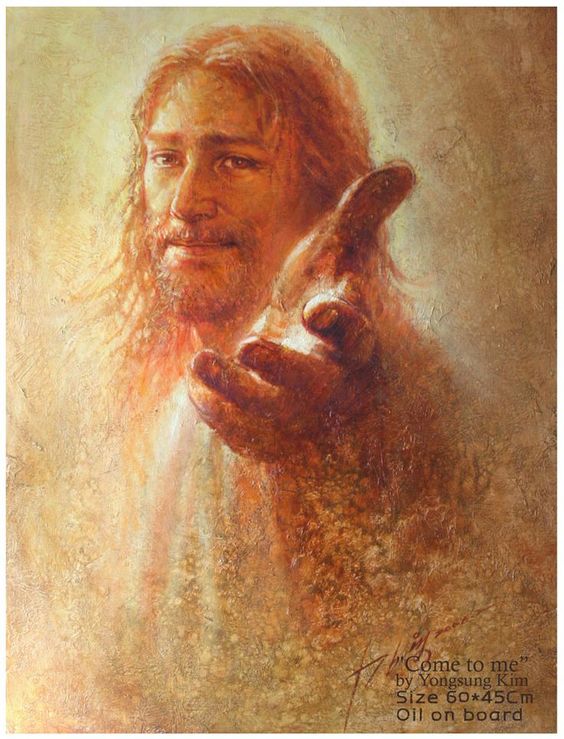
……………..
……………..
……………..
……………..







